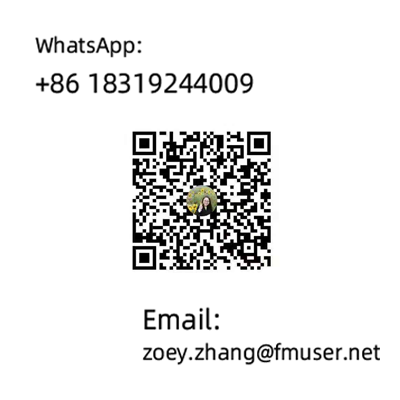Products Category
- FM Transmitter
- 0-50w 50w-1000w 2kw-10kw 10kw+
- TV Transmitter
- 0-50w 50-1kw 2kw-10kw
- FM Antenna
- TV Antenna
- Antenna Accessory
- Cable Connector Power Splitter Dummy Load
- RF Transistor
- Power Supply
- Audio Equipments
- DTV Front End Equipment
- Link System
- STL system Microwave Link system
- FM Radio
- Power Meter
- Other Products
- Special for Coronavirus
Products Tags
Fmuser Sites
- es.fmuser.net
- it.fmuser.net
- fr.fmuser.net
- de.fmuser.net
- af.fmuser.net ->Afrikaans
- sq.fmuser.net ->Albanian
- ar.fmuser.net ->Arabic
- hy.fmuser.net ->Armenian
- az.fmuser.net ->Azerbaijani
- eu.fmuser.net ->Basque
- be.fmuser.net ->Belarusian
- bg.fmuser.net ->Bulgarian
- ca.fmuser.net ->Catalan
- zh-CN.fmuser.net ->Chinese (Simplified)
- zh-TW.fmuser.net ->Chinese (Traditional)
- hr.fmuser.net ->Croatian
- cs.fmuser.net ->Czech
- da.fmuser.net ->Danish
- nl.fmuser.net ->Dutch
- et.fmuser.net ->Estonian
- tl.fmuser.net ->Filipino
- fi.fmuser.net ->Finnish
- fr.fmuser.net ->French
- gl.fmuser.net ->Galician
- ka.fmuser.net ->Georgian
- de.fmuser.net ->German
- el.fmuser.net ->Greek
- ht.fmuser.net ->Haitian Creole
- iw.fmuser.net ->Hebrew
- hi.fmuser.net ->Hindi
- hu.fmuser.net ->Hungarian
- is.fmuser.net ->Icelandic
- id.fmuser.net ->Indonesian
- ga.fmuser.net ->Irish
- it.fmuser.net ->Italian
- ja.fmuser.net ->Japanese
- ko.fmuser.net ->Korean
- lv.fmuser.net ->Latvian
- lt.fmuser.net ->Lithuanian
- mk.fmuser.net ->Macedonian
- ms.fmuser.net ->Malay
- mt.fmuser.net ->Maltese
- no.fmuser.net ->Norwegian
- fa.fmuser.net ->Persian
- pl.fmuser.net ->Polish
- pt.fmuser.net ->Portuguese
- ro.fmuser.net ->Romanian
- ru.fmuser.net ->Russian
- sr.fmuser.net ->Serbian
- sk.fmuser.net ->Slovak
- sl.fmuser.net ->Slovenian
- es.fmuser.net ->Spanish
- sw.fmuser.net ->Swahili
- sv.fmuser.net ->Swedish
- th.fmuser.net ->Thai
- tr.fmuser.net ->Turkish
- uk.fmuser.net ->Ukrainian
- ur.fmuser.net ->Urdu
- vi.fmuser.net ->Vietnamese
- cy.fmuser.net ->Welsh
- yi.fmuser.net ->Yiddish
The History of Commercial Radio Operator Licenses
Date:2014/7/17 9:30:30 Hits:
The Beginning of the Radio IndustryThe United States Congress is charged with regulating interstate and foreign commerce. Congress saw radio as an important means of communication for shipping and passed the Wireless Ship Act of 1910 requiring ocean-going vessels with more than 60 passengers to have a radio on board. After the loss of the Titanic, Congress passed the Radio Act of 1912 mandating compliance with treaty obligations and requiring licensure for all station operators. In the late 1920s, Congress saw that radio was useful for the welfare of the general populace and passed the Radio Act of 1927 establishing the Federal Radio Commission and giving it the regulatory power to regulate the use of “... channels of interstate and foreign radio transmission.” It also had the power to designate licensees and regulate station operating times.
Licensure in the 1930s and 1940s
he Communications Act of 1934 permanently established the Federal Communications Commission with a mission to oversee the licensing of radio operators, regulate manufacturing and maintenance of radio components and oversee the operation of radio stations. This act moved oversight of the wired telecommunications industry from the Interstate Commerce Commission to the FCC and Section 318 required anyone operating radio equipment to have a license issued by the FCC. During World War II from 1943 to 1947, the FCC reduced these requirements because most first class operators were serving in the armed forces.
Licensure in the 1950s, 1960s and 1970s
In 1953 the FCC reduced operator requirements for the routine operation of lower-powered AM and FM stations in response to a petition from the National Association of Radio & Television Broadcasters. In 1963 the requirements were again tightened as a result of recurring violations by unlicensed operators. In 1972 the NARTB again requested loosening of licensing requirements but was turned down by the FCC. In the late 1970s the FCC reviewed its licensing requirements and processes, commissioning a Georgia Institute of Technology study that found that operators with a Restricted Radiotelephone Operator Permit operated most stations. Notably, the study suggested reducing the licensing requirements for routine operation of AM, FM and TV stations.
Licensure in the 1980s and 1990s
The early 1980s saw a deregulation of the industry. Licenses became easily available without testing and renewals became almost automatic. In 1995 the FCC determined that broadcast stations did not require a licensed operator to operate within its regulations and dropped most operator licensing requirements altogether. Radio and TV stations were then permitted to operate without a licensed operator.
Licensure in Late 1990s and Beyond
Currently, an operator’s license is only required for specialized operators like ship and aircraft radio operators. Since the 1990s the regulations have focused on telecommunications carriers such as stations and Internet service providers. The FCC requires radio and television stations to be licensed to employ an operator. The Fair Use Act and the Freedom of Information Act have mandated important regulation and the 1996 Telecommunications Act updated and added to the Communications Act of 1934, but much of the 1934 Act remained in place.
Leave a message
Message List
Comments Loading...





